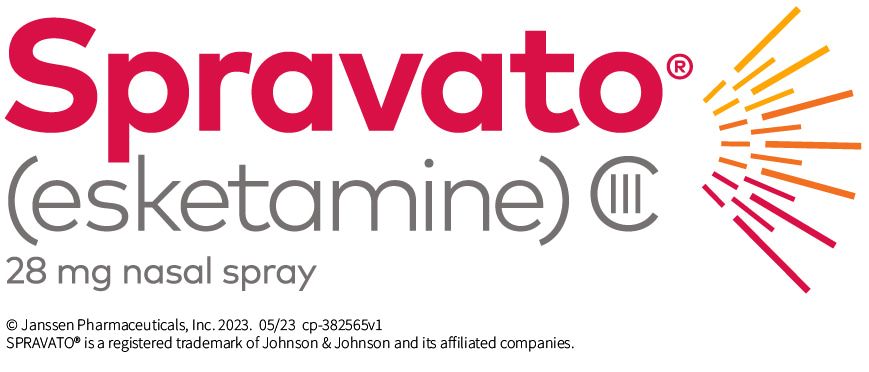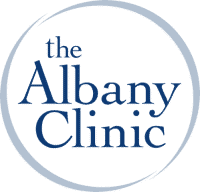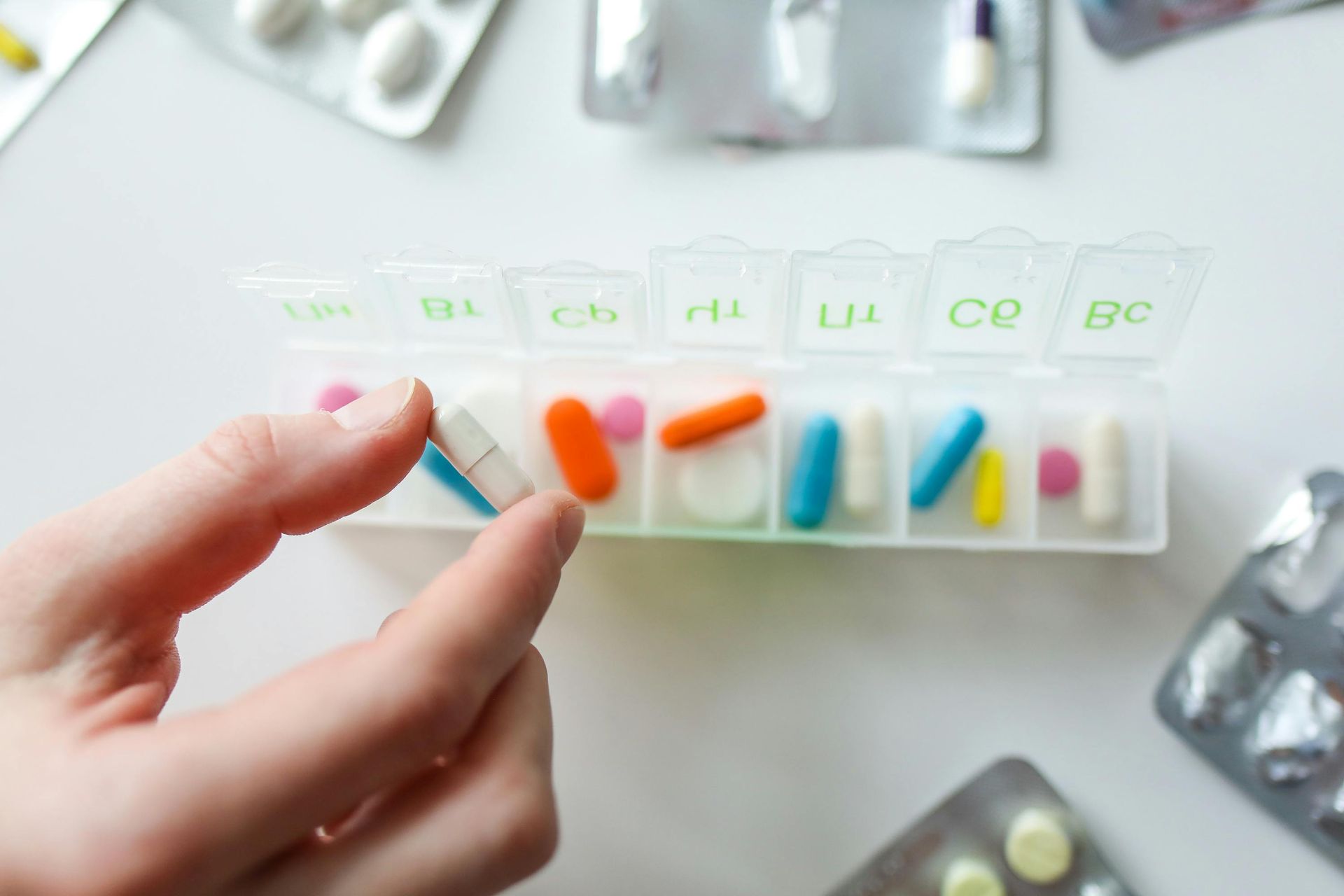The Immediate & Lasting Power of Spravato for PTSD and TRD

The Albany Clinic • March 14, 2024
In the realm of mental health treatment, especially for Post-Traumatic Stress Disorder (PTSD) and Treatment-Resistant Depression (TRD), the emergence of innovative and effective solutions is always a cause for celebration. The introduction of a new service that has the potential to significantly impact the lives of individuals battling major depression marks a significant milestone in the field of psychiatry. In this article, we'll explore the background on depression and PTSD while introducing Spravato® as a innovative treatment option.
Background on Depression and PTSD
Major depression is a complex and debilitating condition that affects millions of individuals worldwide. Shockingly, between 20% to 70% of Americans diagnosed with major depression may experience treatment-resistant depression after failing at least two adequate trials of antidepressant medication. This staggering statistic highlights the urgent need for alternative and more effective treatment options.
Spravato®: An Innovation in Depression and PTSD Treatment
One groundbreaking solution that has garnered attention since its FDA approval in 2019 is
Spravato® (esketamine) nasal spray. This innovative medication has shown promising results during
clinical trials in rapidly bringing relief of depressive symptoms to patients grappling with major depression, including those experiencing suicidal thoughts. Furthermore, in clinical trials it has been proven that when combined with an oral antidepressant patients experienced significantly longer relief. The ability of Spravato® to provide swift, substantial, and long-lasting alleviation from depressive symptoms is a game-changer in the realm of mental health treatment.
The Eskatmine Difference
As a nasal spray derived from ketamine, esketamine offers an evidenced based treatment option for patients who have not found relief from traditional antidepressants. Unlike its precursor, ketamine which is administered intravenously, esketamine is administered nasally through a spray. This targeted approach allows for lower dosages, reducing potential side effects. Notably, it can rapidly alleviate symptoms, including suicidal ideation—a vital benefit highlighted by
Johns Hopkins Medicine. This novel treatment requires administration under medical supervision due to initial side effects, emphasizing its safe and controlled use.
If you feel treatment for depression isn’t working, talk to your psychiatrist to see if esketamine therapy is an option for you. If you're local to Carbondale Illinois, we can help!
What qualifies you for SPRAVATO®?
Spravato®, a treatment for those with severe depression not responding to conventional medications, is covered by most major insurance policies and designed for medicinal use, distinctly from its ketamine counterpart. It's important to dispel misinformation about Spravato® and ketamine, recognizing Spravato's role in treating depression effectively. However, it's not suitable for everyone, especially individuals with cardiovascular issues or a history of substance abuse, due to risks associated with blood pressure elevation and potential for misuse.
A few other risk factors must be taken into consideration so be sure to tell your provider if you have heart, brain or liver problems, you have ever had psychosis (see, feel, or hear things that aren't there, or believe in things that aren't true), or if you are pregnant or breastfeeding. All prescription or over-the-counter medicines, including vitamins or herbal supplements, must be disclosed to your healthcare professional.
At your appointment your healthcare professional will discuss common side effects with you before deciding if Spravato® is right for you in treating your symptoms of depression.
Clinical Trials and Studies on Spravato®
» Swift Delivery
What sets Spravato® apart from traditional oral antidepressant medications is its unique mode of administration. As a nasal spray, Spravato® bypasses the digestive system and is directly absorbed into the bloodstream through the nasal mucosa. This alternative route of delivery allows for faster onset of action and more targeted delivery of the medication to the brain, resulting in quicker relief for patients in distress.
» Enhanced Access to Life-Saving Medication
Albany Clinic's commitment to providing greater access to Spravato® is a testament to our dedication to improving mental health care. By offering this potentially life-saving medication to patients in need, we are bridging the gap for individuals whose depressive disorder has not responded to conventional treatment methods. The impact of this increased accessibility cannot be overstated in the realm of mental health treatment.
» Future Directions for Spravato® in Depression and PTSD Treatment
Further supporting this breakthrough treatment option, in March 2024 the
UConn Health Department of Psychiatry launched a new eskatemine service which represents a significant opportunity to contribute to the scientific literature surrounding this new medicine. Through research, clinical trials, and scholarly collaborations, UConn Health aims to expand understanding of the efficacy and potential applications of Spravato®, paving the way for future advancements in the field of mental health treatment.
Clinical Trials and Studies on Spravato®
Curious about how esketamine service works? Let's dive in and explore the process step by step.
» The Nasal Spray Administration
Once your physician has determined you meet the criteria for esketamine treatment they will administer the nasal spray. Each patient at Albany Clinic is carefully attended to by their treating provider. The nasal spray is expertly administered in the office to ensure the safety and comfort of every individual undergoing treatment.
» Treatment Schedule
Patients receiving esketamine follow a customized treatment schedule. Initially, patients may receive the nasal spray frequently. Following this intensive phase, the frequency of administration may reduced based on results in reducing depressive symptoms. This structured approach aims to optimize the therapeutic benefits of esketamine for patients and help to reduce common side effects.
» Continuation of Treatment
After the initial period of treatment, patients may continue receiving esketamine on a less frequent basis based on an assessment by their provider. This flexibility allows for personalized treatment plans tailored to each individual's needs. Qualified providers at The Albany Clinic work closely with patients to determine the most effective and sustainable long-term treatment strategy.
» The Powerful Potential of Combining Esketamine Treatment with Therapy
One of the most promising avenues in mental health treatment for depressive disorders such as PTSD and TRD involves the fusion of esketamine with therapy and oral antidepressants. When combined with therapy, such as cognitive-behavioral therapy (CBT) or psychotherapy, esketamine treatment can potentially enhance the overall efficacy of treatment by addressing both the biological and psychological aspects of depression.
The synergistic effect of esketamine and therapy holds the promise of not just alleviating symptoms but also addressing the underlying causes of depression, leading to more sustainable and long-term recovery outcomes for individuals battling treatment-resistant depression.

Conclusion & Support
As we look ahead to the future of mental health treatment, the emergence of new services that combine esketamine treatment with traditional therapies offers a dual ability to contribute to the treatment of post-traumatic stress disorder and treatment resistant depression. By integrating cutting-edge pharmacological interventions with evidence-based psychological approaches, these services have the potential to address the complex and multifaceted nature of depression more comprehensively.
Furthermore, by grounding their practice in the evidence base that guides the mental health field, these innovative services not only provide clinical benefits to individuals seeking relief from depression but also contribute to the advancement of scientific knowledge and best practices in mental health care.
Together, the collaborative efforts of researchers, clinicians, and institutions like UConn School of Medicine and John Hopkins Medicine pave the way for clinics like The Albany Clinic to envision a future where individuals with treatment-resistant depression have access to more effective and holistic treatment options that promote healing and recovery.
Seeking Help for Severe Depression or Suicidal Thoughts
Struggling with severe depression or suicidal thoughts is an urgent matter that requires immediate attention and care. If you or someone you know is in crisis, it's essential to take action to ensure safety and well-being.
Alert Your Psychiatric Provider Immediately
If you have a psychiatric provider or therapist, let them know about your current state as soon as possible. They can offer support, guidance, and even make adjustments to your treatment plan to provide you with the help you need.
Get Help by Calling 9-1-1, 2-1-1, or the National Suicide & Crisis Hotline 988
If you do not have a psychiatric provider or if the situation is urgent, do not hesitate to reach out for help immediately. You can call emergency services by dialing 9-1-1, contact a local crisis helpline such as 2-1-1, or connect with the National Suicide & Crisis Hotline by dialing 988. These resources are available 24/7 to provide support and assistance during times of crisis.
The Albany Clinic in Carbondale Illinois invites you to
reach out for expert guidance and support on your journey towards healing and stability. We offer Spravato® treatment as well as traditional ketamine infusion, TMS therapy, and other services to help with depression.
35 Albany Rd. Suite A Carbondale, IL 62903
Phone: (888) 804-4330
Source:
Daly, Ella J et al. “Efficacy of Esketamine Nasal Spray Plus Oral Antidepressant Treatment for Relapse Prevention in Patients With Treatment-Resistant Depression: A Randomized Clinical Trial.” JAMA psychiatry vol. 76,9 (2019): 893-903. doi:10.1001/jamapsychiatry.2019.1189






